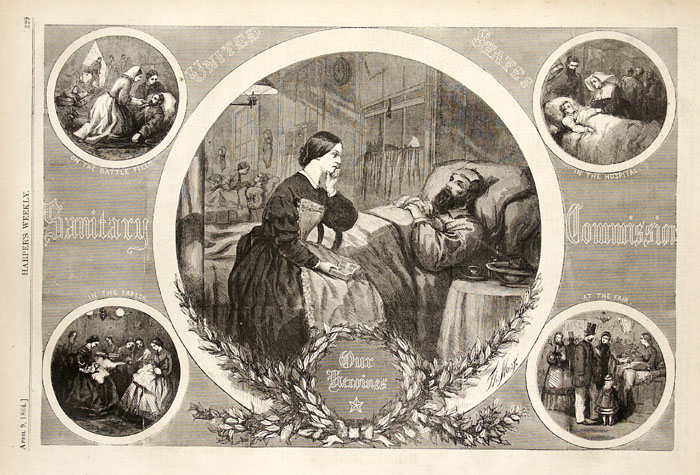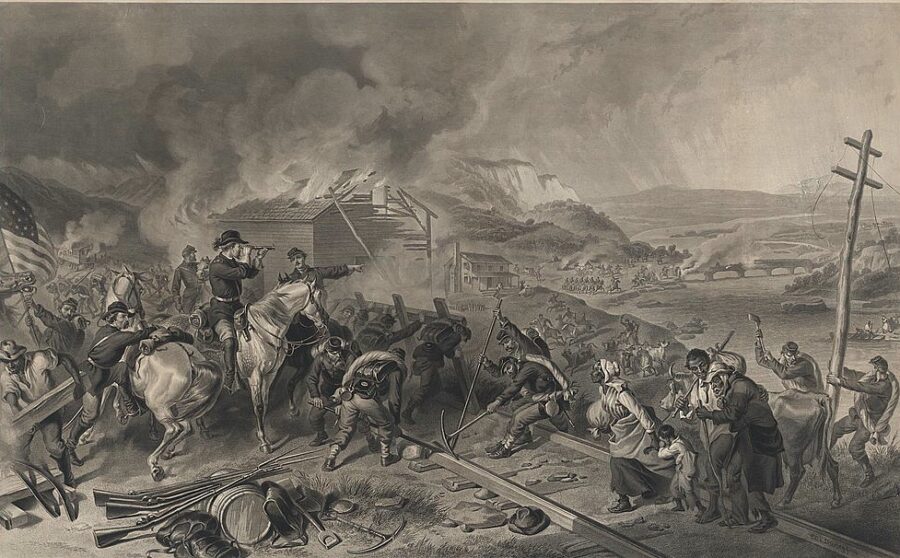
Founded on June 18, 1861 via federal legislation, the United States Sanitary Commission (USSC) was a private relief agency that supported sick and wounded soldiers of the U.S. Army during war. For five years (from 1861 to 1861), the volunteers of the USSC—primarily women—worked under the direction of Frederick Law Olmstead to provide food, clothing, medical supplies, shelter, and treatment to soldiers and their families. The USSC also staffed nurses for field hospitals and hospital ships, established Soldier Homes, advocated for soldiers’ back wages, manned soldier comfort stations, and helped make travel arrangements for troops to see their families.
Katharine Prescott Wormeley, a nurse and USSC volunteer, published The United States Sanitary Commission: A Sketch of Its Purposes and Its Work in 1863. The following is an excerpt from her introduction that explains Civil War women’s desire to aid the Union cause and their vital role to the war effort via the USSC:
When, in April, 1861, the guns of South Carolina were pointed at the life of her country, and the first shots were fired at the breast of that august form of Liberty, lifted here in the West, and shining with an aspect of redemption to the world, men were aroused to vindicate the vital principle of nationality: and in that great uprising nothing was more marked than that the principle which actuated the men was shared alike by men and women. As the men sprang to arms, the women rose to find what they should do; nor had they far to seek. For one side of war is theirs, and that the dark reverse of it; theirs not only in the patient act of yielding their beloved,— to receive them back, it may be, in widowhood and bereavement, — but theirs in the actual succor which, God be thanked, is their right and their place to render to the suffering. This, no doubt, was the first aspect of the work to the hearts of women. Time was to show them that, by a great united effort, the work was to broaden out into a material good to the whole army; that lives were to be saved, the vital force protected, and that women, guided by the wisdom of men, were to bear no small part in helping to maintain the efficiency of the army, and thus to share upon the field itself the work of husbands and brothers.
As the men mustered for the battle-field, so the women mustered in churches, school-houses, and drawing rooms…
If you are interested in learning more about the U.S. Sanitary Commission, we recommend reading Civil War Sisterhood: The U.S. Sanitary Commission and Women’s Politics in Transition by Judith Giesberg—one of our editorial advisors.
Source: Wormeley, Katharine Prescott. The United States Sanitary Commission: A Sketch of Its Purposes and Its Work. Boston: Little, Brown and Company, 1863.
Image Credit: Harper’s Weekly, April 19, 1864.
